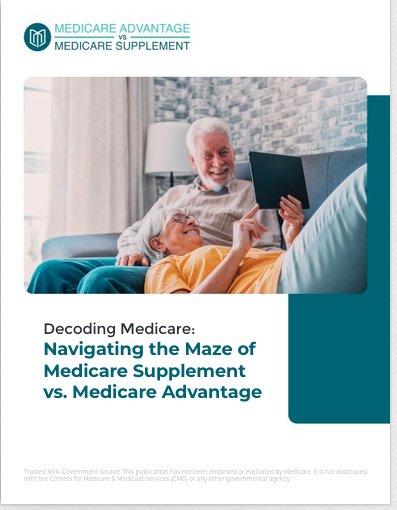Key Takeaways
- Medicare myths can lead to confusion and misinformed decisions; understanding the facts helps in making the right choices.
- Clarifying common misconceptions about Medicare ensures beneficiaries can make the most out of their coverage.
Heard These Medicare Myths? Here’s the Real Story Behind Common Misconceptions
When it comes to Medicare, misinformation is everywhere. With a system as complex as Medicare, it’s easy for myths and misunderstandings to circulate, leading to confusion among beneficiaries. However, knowing the truth behind these common Medicare myths is essential to ensure you’re getting the right coverage and making informed decisions. This article will debunk some of the most prevalent myths surrounding Medicare, helping you understand what’s real and what’s not.
Myth 1: Medicare is Free
One of the most widespread myths is that Medicare is entirely free. This misconception often leads to shock when beneficiaries start receiving bills. The truth is that while Medicare provides substantial coverage, it is not free. There are different parts of Medicare, each with its own cost structure.
- Part A: Hospital insurance, which most people do not pay a premium for if they have worked and paid Medicare taxes for a certain period.
- Part B: Medical insurance, which usually requires a monthly premium.
- Part D: Prescription drug coverage, which also comes with a monthly premium that varies based on the plan and income level.
Additionally, there are other out-of-pocket costs like deductibles, copayments, and coinsurance. Beneficiaries must plan for these expenses to avoid unexpected financial burdens.
Myth 2: Medicare Covers Everything
Another common myth is that Medicare covers all healthcare expenses. While Medicare provides significant coverage, it does not cover everything. For example, Medicare generally does not cover long-term care, most dental care, vision, hearing aids, or routine foot care. This misconception can lead to beneficiaries being unprepared for certain out-of-pocket costs.
To fill these gaps, some people opt for additional coverage through Medigap policies, Medicare Advantage Plans, or standalone dental and vision plans. Understanding what Medicare does and doesn’t cover is crucial for avoiding surprise expenses.
Myth 3: You Don’t Need Medicare If You’re Still Working
Many people believe they can skip enrolling in Medicare if they are still working and have employer-sponsored health insurance. However, this isn’t always the case. If you work for a small company with fewer than 20 employees, your employer’s insurance may become secondary to Medicare once you turn 65. In this scenario, if you don’t sign up for Medicare Part B when you’re first eligible, you could face late enrollment penalties and gaps in coverage.
For larger companies, you may choose to delay Part B without penalty if your employer coverage is deemed creditable. However, it’s vital to understand the specifics of your situation to avoid penalties and ensure continuous coverage.
Myth 4: Medicare Enrollment is Automatic for Everyone at 65
While some individuals are automatically enrolled in Medicare when they turn 65, others need to take action. Automatic enrollment typically applies to those already receiving Social Security benefits. If you are not receiving these benefits, you must actively enroll during your Initial Enrollment Period (IEP), which begins three months before your 65th birthday, includes the month of your birthday, and ends three months after.
Failing to enroll during this period could result in late enrollment penalties, which increase your premiums for life. This myth often leads to missed deadlines and costly penalties, so it’s essential to know whether you need to take action to enroll.
Myth 5: Medicare Advantage Plans Are the Same as Original Medicare
Medicare Advantage Plans, also known as Part C, are often misunderstood as being identical to Original Medicare. However, these plans are offered by private insurance companies and must provide at least the same benefits as Original Medicare. The key difference lies in how these benefits are delivered. Medicare Advantage Plans often include additional benefits like vision, dental, and hearing coverage, and they may offer prescription drug coverage, combining it with medical benefits in a single plan.
However, these plans may have network restrictions, requiring you to see doctors within a certain network to get the full benefits. Understanding the distinctions between Medicare Advantage and Original Medicare is crucial for choosing the right plan based on your healthcare needs.
Myth 6: You Can Enroll in Medicare Anytime After 65 Without Penalties
Many believe they can delay enrolling in Medicare without facing penalties, but this is not the case. If you don’t sign up for Medicare Part B during your IEP and don’t qualify for a Special Enrollment Period (SEP), you may incur a late enrollment penalty. This penalty is an additional 10% for each full 12-month period that you were eligible for Part B but did not enroll, and it is added to your monthly premium permanently.
The same applies to Medicare Part D, which covers prescription drugs. If you go without creditable drug coverage for more than 63 days after your IEP, you may face a late enrollment penalty that also lasts as long as you have Part D coverage.
Myth 7: Medicare Part D Isn’t Necessary If You Don’t Take Prescription Drugs
It might seem logical to skip Medicare Part D if you don’t currently take prescription drugs, but this can be a costly mistake. Prescription drug needs can change over time, and not having Part D coverage when you need it can lead to high out-of-pocket costs. Additionally, if you decide to enroll in Part D later and didn’t have creditable prescription drug coverage, you may face a late enrollment penalty.
This penalty is calculated as 1% of the national base beneficiary premium multiplied by the number of months you were without Part D or creditable coverage. Planning ahead and enrolling in Part D when you’re first eligible, even if you don’t take medications, can save you money in the long run.
Myth 8: Once Enrolled, You Can’t Change Your Medicare Plan
There’s a misconception that once you choose a Medicare plan, you’re locked in forever. However, Medicare offers several opportunities each year to review and change your coverage. The Annual Enrollment Period (AEP), from October 15 to December 7, allows you to switch between Medicare Advantage Plans, switch from a Medicare Advantage Plan to Original Medicare or vice versa, and join or switch Part D plans.
There’s also the Medicare Advantage Open Enrollment Period (OEP) from January 1 to March 31, where you can switch Medicare Advantage Plans or move back to Original Medicare. These options provide flexibility to adjust your coverage as your needs change.
Myth 9: Medicare Covers All Long-Term Care Needs
Many people mistakenly believe that Medicare will cover all their long-term care needs, but this is not the case. Medicare only covers limited long-term care services, primarily focusing on short-term care following an illness or injury. For instance, Medicare may cover up to 100 days of skilled nursing facility care after a qualifying hospital stay, but it does not cover custodial care, which includes help with daily activities like bathing, dressing, and eating.
Medicaid, a separate program, is often the primary payer for long-term care services for those who qualify. Understanding the limitations of Medicare’s long-term care coverage is crucial for planning and ensuring you have the necessary resources if long-term care becomes a need.
Myth 10: Medicare is Only for Individuals Over 65
While Medicare is most commonly associated with individuals over 65, it also provides coverage for certain younger people with disabilities and those with End-Stage Renal Disease (ESRD) or Amyotrophic Lateral Sclerosis (ALS). These individuals may be eligible for Medicare after receiving Social Security Disability Insurance (SSDI) for 24 months or immediately upon diagnosis with ESRD or ALS.
This myth often leads to a lack of awareness among those who qualify under these conditions, potentially delaying essential coverage. If you or a loved one falls into these categories, understanding eligibility is key to ensuring timely access to Medicare benefits.
Staying Informed for Better Decision-Making
Navigating Medicare can be complex, and misinformation can lead to costly mistakes. By dispelling these common myths, beneficiaries can better understand their coverage options, avoid penalties, and make informed decisions about their healthcare. Staying informed and reviewing your Medicare coverage annually, especially during enrollment periods, ensures you are taking full advantage of the benefits available to you.
For more detailed information and assistance, it’s always a good idea to refer to official resources like CMS.gov or consult with licensed insurance agents. They can provide guidance tailored to your specific needs and help you make the most informed decisions regarding your Medicare coverage.•••••••
Contact Information:
Email: [email protected]
Phone: 6026285580










